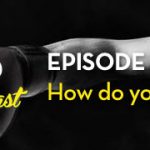Responsibility
We have been, unintentionally, following a theme in the podcasts over the last few weeks. I hadn’t realised it until we had Jodie on board and we were talking about veganism and, in some ways, the rights of animals. In recent podcasts we have discussed many subjects all of which are related to, or have a direct link to, power and the use of power. That is, the power that we exercise over our self, over others or over animals and on the world at large. I don’t know if we are the most powerful beings that have ever been on this planet but I do suspect that we could potentially be the most destructive. That destruction domes from the power that we exercise over animals and the environment.
We all exercise power every moment of every day and the more power that we have the greater the impact that we have on the world around us. The issue is are we aware of our power? And, do we take responsibility for the way in which we use our power?
Power and responsibility go together
I have worked in hundreds of organisations and the thing that most of them have in common is that they separate power and responsibility. For instance, the manager or the directorate board have all the power because firstly they are in a position to command and secondly they hold the resources and the budget. In most cases the workers, the staff, hold the responsibility to enact the commands of the directorate board. However they do not have the power.
Imagine a ward in a hospital. The staff have the responsibility to look after the wellbeing of the patients. There may a shortage of staff either people are off sick or there has not been the money to replace those that have left. The level of responsibility for the staff remaining is the same even though now there are less resources to complete the task. While the staff are running around taking responsibility for the patients the directorate board are somewhere else, remote, maybe even at home. The directorate managers have the power but are not taking the responsibility.
Power requires responsibility
This type of scenario is replicated across many organisations public and private. Once power and responsibility become separated in any system it will begin to breakdown. Power without responsibility equals insensitivity, bullying, perpetration, dictatorship, narcissism, and psychopathy. To enact power without responsibility requires a lack of both insight and empathy. The power that committed the Jews to the concentration camps of the Second World War is no different to the power that currently commits cows to the abattoir.
Responsibility requires power
To take responsibility for something without having the power that would enable you to enact that responsibility equals naivety, stupidity, failure, and victimisation. Strangely both have one similar issue. If we go back to the ward. Perhaps the nursing staff do not have the equipment, linen or medication to do their job. They have no power to go and get what they need yet they are held to account and remain responsible for the well being of the patients in their care.
Both situations described above have one thing in common. The person who has the power yet takes no responsibility lacks insight. The person who attempts to enact their responsibility without the power to do it also lacks insight.
What is insight ?
Insight is awareness. Awareness is the application of consciousness. Applied consciousness is what I term ‘the observer self’. It is the ability that we all have to observe what we think, feel and do. To have conscious awareness of our thinking, feeling and doing has two effects. The first is that it give us a choice, “should I, or should I not, do, think or feel?” The second is that is gives us true responsibility. When we act with clarity of purpose and outcome we are acting with insight.
Karma
Karma simply means the consequence of our actions. Everything that we think, feel or do will have an outcome. That outcome will effect us and it will effect other people.
Dharma
Dharma is right action, to act righteously or to do the right thing. To act dharmically is to act, to act with insight, with conscious awareness. It is to act to the best of our ability.
When we act dharmically we act responsibly. When we truly act dharmically we limit the negative consequence or karma of our actions and ensure the best possible outcome for ourselves and for everyone and everything involved in our decision.
Getting it wrong
We’ll get things wrong. At sometime most people look back and think “if had done that differently then…” or “if I knew then what I know now…? There is no blame in getting things wrong, that is not the issue. The issue is can I take responsibility for those things that I got wrong or did wrong?
Sometimes we can repair the damage that we do in life and sometimes we cannot. Sometimes we can repair the damage done to ourselves and sometimes we cannot. We each need to be aware of what we have done, to know what we can change, to leave alone why we cannot change and let it go, and, as the prayer says ‘have the wisdom to know the difference”.
The world is full of those who act without taking any responsibility for their actions. Many of these people are in positions of great power. The negative effects that they have on those that have to take the responsibility of enacting their demands is huge. Simply look at the First World War and all those that died in the trenches in France, for what?
My belief that we will all be alright once we all learn to look after each other is the real application of power used responsibly. As long as we don’t separate power and responsibility we stand a chance of survival.
Be happy and use you insight to use you power responsibly.
Take care
Sean x



Trackbacks & Pingbacks
[…] Here’s Sean’s blog post for the week […]
Leave a Reply
Want to join the discussion?Feel free to contribute!